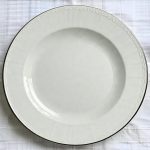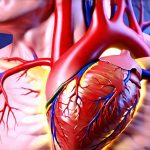Heartburn, that burning sensation in your chest after eating, is an incredibly common experience. For many, it’s just an occasional annoyance, but for others, it can be debilitating and significantly impact their quality of life. Often, we reach for quick fixes – antacids, over-the-counter medications – to soothe the immediate discomfort. However, a more sustainable and effective approach lies in understanding why heartburn happens and proactively preventing it through mindful dietary choices. It’s not always about eliminating foods entirely; frequently, it’s about balance, portion control, and how we combine different food groups on our plates.
The root cause of heartburn is typically acid reflux, where stomach acid flows back up into the esophagus. This can be triggered by a variety of factors including certain foods, large meals, lying down after eating, or even stress. While medication can provide temporary relief, it doesn’t address the underlying issue. Focusing on building balanced dinner plates – that thoughtfully combine different food groups while minimizing triggers – is a powerful strategy for long-term heartburn management and improved digestive health. This isn’t about restrictive dieting; it’s about making informed choices to support your body’s natural processes. It’s also important to consider how to maintain a balanced diet if you suffer from chronic reflux.
Building Blocks of a Heartburn-Friendly Dinner Plate
A balanced dinner plate should ideally incorporate lean protein, complex carbohydrates, and healthy fats – all in appropriate portions. The key is to avoid overwhelming the digestive system with large quantities of food or combinations that are known to exacerbate acid reflux. Overeating stretches the stomach, increasing pressure on the lower esophageal sphincter (LES), which is the muscle that prevents acid from flowing back up into the esophagus. Similarly, high-fat foods can relax the LES, making it easier for acid to escape. Focusing on smaller portions and prioritizing whole, unprocessed foods are foundational steps toward heartburn relief.
Consider this analogy: think of your digestive system as a finely tuned engine. Putting in low-quality fuel (processed foods) or overloading it with too much at once (large meals) will cause it to sputter and malfunction. Providing it with clean, balanced “fuel” – nutrient-rich foods in moderate amounts – ensures smooth operation. This isn’t about deprivation; it’s about optimization. It’s also important to note that individual triggers vary, so paying attention to how your body responds to different foods is crucial for personalized dietary adjustments. When planning meals, consider how to plan balanced meals even with dietary restrictions.
Furthermore, the method of cooking can play a significant role. Fried and greasy foods are notorious heartburn culprits because they slow down digestion and increase acid production. Opting for baking, grilling, steaming, or poaching instead significantly reduces these effects. Similarly, adding spices – while generally healthy – can sometimes trigger heartburn in sensitive individuals; observing your body’s response to different seasonings is essential.
The Role of Specific Food Groups & Timing
Let’s delve deeper into how specific food groups impact heartburn and the importance of meal timing. Certain foods are more likely to contribute to acid reflux, while others can actually help soothe the digestive system. For example, citrus fruits, tomatoes, chocolate, caffeine, alcohol, and carbonated beverages are common triggers for many people. These foods either increase stomach acid production or relax the LES. However, this doesn’t mean you have to eliminate them entirely; simply be mindful of portion sizes and frequency.
On the other hand, incorporating alkaline foods like bananas, melons, oatmeal, and vegetables can help neutralize stomach acid. Fiber-rich foods also promote healthy digestion and prevent constipation, which can contribute to heartburn. Timing your meals is equally important. Avoid eating large meals close to bedtime, as lying down immediately after eating increases the risk of acid reflux. Aim to finish dinner at least 2-3 hours before going to bed. Smaller, more frequent meals throughout the day can also help keep digestion regular and prevent overfilling the stomach. To further manage meal times, remember how to avoid digestive overload at dinner.
Identifying Your Personal Triggers
The most effective approach to managing heartburn is personalized. What triggers heartburn in one person may not affect another. – Start a food diary: meticulously record everything you eat and drink, along with any symptoms you experience afterward. This will help identify potential trigger foods. – Pay attention to portion sizes: even seemingly harmless foods can cause heartburn if consumed in excessive quantities. – Consider elimination diets: temporarily remove suspected trigger foods from your diet for a few weeks, then reintroduce them one at a time to see how your body responds.
Remember that stress and anxiety can also exacerbate heartburn symptoms. Finding healthy ways to manage stress – such as exercise, meditation, or yoga – can significantly improve digestive health. Don’t underestimate the power of mindful eating; slowing down while you eat, chewing your food thoroughly, and focusing on the experience can all aid digestion and reduce the likelihood of heartburn. You may find it helpful to rotate foods to avoid fatigue or sensitivities.
Hydration & Digestive Support
Staying adequately hydrated is crucial for overall health and plays a role in preventing heartburn. Water helps dilute stomach acid and facilitates smooth digestion. However, avoid drinking large amounts of water during meals, as this can increase stomach volume and potentially trigger reflux. Instead, sip water throughout the day, between meals. Some herbal teas – such as chamomile or ginger – may also provide digestive support.
Ginger, in particular, has anti-inflammatory properties that can help soothe the digestive tract. However, be mindful of individual sensitivities; some people may find that ginger exacerbates heartburn symptoms. Probiotics, found in fermented foods like yogurt and kefir, promote a healthy gut microbiome, which is essential for optimal digestion. A balanced gut microbiome can reduce inflammation and improve overall digestive function. It’s important to consider how gut recovery after antibiotics requires careful management.
Beyond Dinner: Holistic Lifestyle Adjustments
While focusing on dinner plates is a great starting point, managing heartburn effectively requires a holistic approach that encompasses lifestyle adjustments beyond just food choices. – Maintain a healthy weight: excess weight puts pressure on the abdomen, increasing the risk of acid reflux. – Elevate the head of your bed: raising the head of your bed by 6-8 inches can help prevent stomach acid from flowing back up into the esophagus while you sleep. – Avoid tight clothing: tight clothes around the abdomen can also increase pressure and contribute to heartburn. – Quit smoking: smoking weakens the LES, making it more likely for acid to reflux.
Ultimately, preventing heartburn is about listening to your body, making informed choices, and adopting a lifestyle that supports optimal digestive health. It’s not about strict rules or deprivation; it’s about finding a balance that works for you and allows you to enjoy meals without the discomfort of heartburn. Remember to consult with a healthcare professional if your symptoms are severe or persistent, as they may indicate an underlying medical condition. And remember how the gut affects motivation to move and engage with your day! It’s also worth considering how visual stimuli can cause nausea.


















